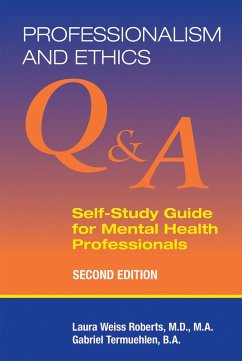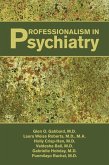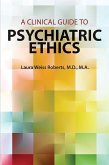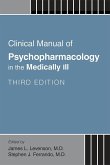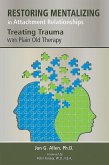Like its pioneering predecessor, this new edition of Professionalism and Ethics: Q & A Self-Study Guide for Mental Health Professionals offers an interactive, case-oriented approach to mental health ethics. Organized around scenarios that pose important-sometimes thorny-ethical questions, the book draws on the diverse clinical and research experience of its contributors, who have backgrounds in medicine, ethics, psychology, law, medical education, religious studies, public health, and related fields. The editor, an internationally recognized scholar in bioethics, psychiatry, and medical education, oversaw a rigorous review process, ensuring that the content meets the highest standard, as befits a text on ethics and professionalism. The book begins with an overview of the role of ethics in caring for people with mental illness, concepts and models of professionalism, and ethics education, followed by a chapter examining ethics in the mental health professions, with emphasis on learning and applying essential skills. Questions and annotated answers follow, and the brief case descriptions that frame each question, presented in single-answer, multiple-choice format, echo the real-life complexities of clinical practice.
Psychiatry has evolved significantly since the last edition, and the new edition's plentiful revisions and fresh material reflect these changes: . Assisted suicide and euthanasia, which pose controversial and difficult ethical questions, are explored in-depth, with attention accorded religious views, the complexity of informed consent, and the concern that some who choose euthanasia may be clinically depressed.. Navigating social media, experiencing the loss of anonymity, and engaging in self-disclosure of all kinds presents new challenges for practitioners; the pitfalls, both ethical and psychological, are thoroughly discussed. . The digital age poses many ethical dilemmas regarding patient privacy. Is it acceptable for clinicians to "Google" their patients, or is it merely voyeurism? What about consent? . Burnout among mental health practitioners is growing, and professional well-being is an emergent topic. The book examines the increased expectations of physicians and what setting reasonable limits in an era of the electronic health record might look like.. Over the past few decades, neuroscience has been accepted as the conceptual basis for understanding and treating mental illness, and neuroethics have achieved an attendant importance. Human subjects research and the active question of public trust in science, as well as emerging domains, including neurotechnologies, neurolaw, and philosophy of cognition, are carefully examined.
Eloquent, instructive, and pragmatic, Professionalism and Ethics: Q & A Self-Study Guide for Mental Health Professionals offers critical learning to prepare professionals for ethical challenges in care and research and is an essential reference and tool for an increasingly complex world.
Psychiatry has evolved significantly since the last edition, and the new edition's plentiful revisions and fresh material reflect these changes: . Assisted suicide and euthanasia, which pose controversial and difficult ethical questions, are explored in-depth, with attention accorded religious views, the complexity of informed consent, and the concern that some who choose euthanasia may be clinically depressed.. Navigating social media, experiencing the loss of anonymity, and engaging in self-disclosure of all kinds presents new challenges for practitioners; the pitfalls, both ethical and psychological, are thoroughly discussed. . The digital age poses many ethical dilemmas regarding patient privacy. Is it acceptable for clinicians to "Google" their patients, or is it merely voyeurism? What about consent? . Burnout among mental health practitioners is growing, and professional well-being is an emergent topic. The book examines the increased expectations of physicians and what setting reasonable limits in an era of the electronic health record might look like.. Over the past few decades, neuroscience has been accepted as the conceptual basis for understanding and treating mental illness, and neuroethics have achieved an attendant importance. Human subjects research and the active question of public trust in science, as well as emerging domains, including neurotechnologies, neurolaw, and philosophy of cognition, are carefully examined.
Eloquent, instructive, and pragmatic, Professionalism and Ethics: Q & A Self-Study Guide for Mental Health Professionals offers critical learning to prepare professionals for ethical challenges in care and research and is an essential reference and tool for an increasingly complex world.
Dieser Download kann aus rechtlichen Gründen nur mit Rechnungsadresse in A, D ausgeliefert werden.

